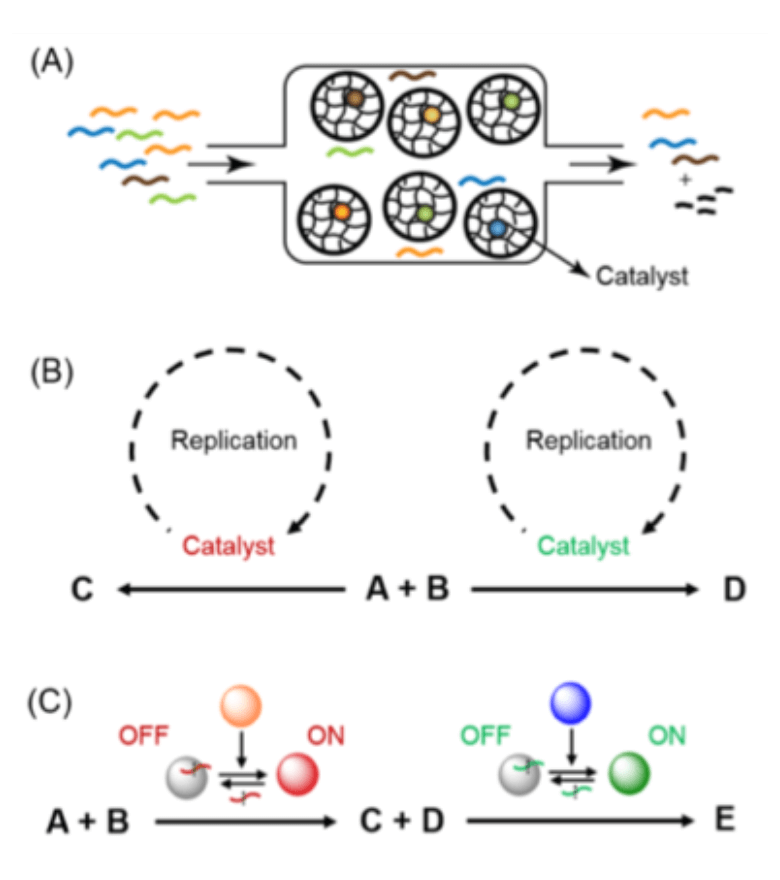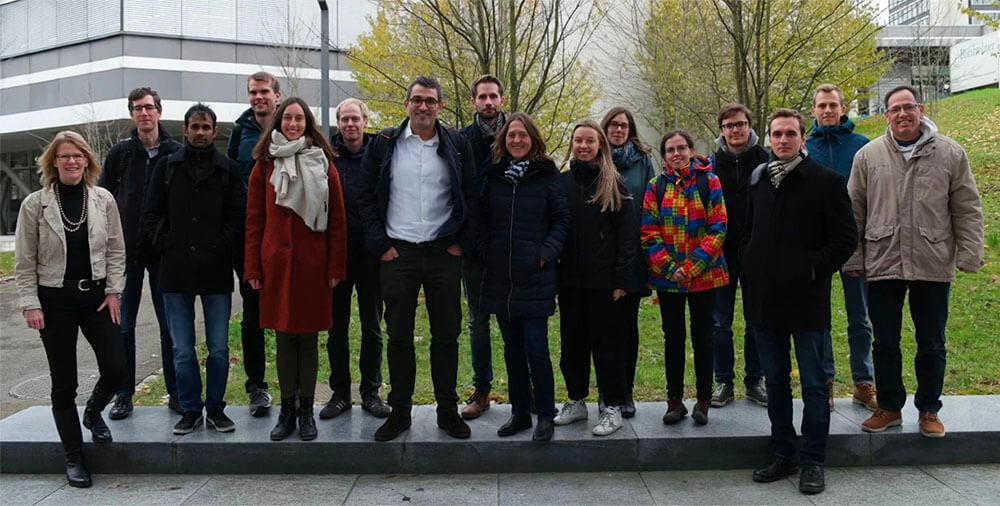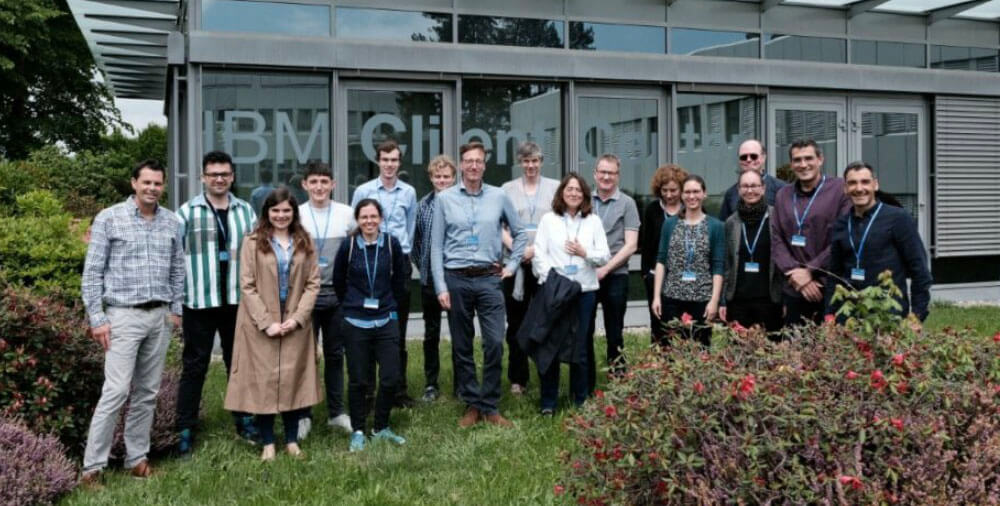Current state-of-the-art chemical synthesis requires several reaction steps and produces vast amounts of waste, for example 25–100 kg of waste per kg of product for pharmaceutical drugs. This is inefficient and not sustainable.
The vision of CLASSY is to revolutionise chemical synthesis by eliminating the need for many intermediate reaction steps, resulting in close to zero waste streams and a sustainable, green ‘chemical factory of the future’.
To realise this vision, CLASSY aims to develop a radically new type of chemical reactor inspired by the way in which living systems manage to modulate catalytic activity.

CLASSY is a FET-Open Research and Innovation Action inspired by the elegance with which living cells synthesize an enormous variety of complex products.
Its ultimate aim is to develop the first microfluidic platform of microreactors, through the compartmentalisation of multiple catalytic peptides and/or enzymes, to emulate living cells in their capacity to self-regulate and catalyse programmable multistep synthetic processes.
The specific objectives of CLASSY are:
Learn more about CLASSY project here.
CLASSY is a EU funded FET-Open project coordinated by Andrés de la Escosura, which brings together 5 leading research groups in systems chemistry, peptide replication, complex reaction networks, and peptide/enzyme catalysis.

Their expertise will be combined with new microfluidic technology developed by a high-tech SME and expert dissemination and exploitation support from an SME specialised in project management and communication of EU funded projects.
This highly interdisciplinary consortium will generate new scientific knowledge and novel technologies to support essential pillars for Europe`s future, such as renewability, sustainability, zero waste emissions and energy efficiency.
Learn more about CLASSY’s researchers and team members here.
The brain is the world’s most amazing computer and it runs entirely on chemical reactions. The vision of CORENET is to construct brain-mimicking computing devices that utilise networks of chemical reactions as molecular information processing systems.
The consortium, coordinated by Andrés de la Escosura, will implement RESERVOIR COMPUTING (RC) on microfluidic chips using CHEMICAL REACTION NETWORKS (CRNs) that convert input feedstock molecules and environmental conditions into a pattern of product molecules. For this purpose, the project will lie on four main pillars, which are explained below.

Learn more about CORENET project here.
Systems chemistry. The construction of chemical networks with life-like features to emulate the computing capacity of living cells would be impossible without the synergistic involvement of systems chemistry, reaction networks and cheminformatics. The UAM research group will focus on SYSTEMS CHEMISTRY, brining expertise in: organic synthesis of biohybrid systems, complex replication networks and their compartmentalization.
Metabolomics. Part of CORENET’s research will focus on the use of advanced analytical techniques (such as HPLC, GC and mass spectrometry) to separate, identify and quantify molecular species in the produced COMPLEX REACTION NETWORKS (CRN). The METABOLOMICS research in CORENET will be carried out by CIAL-CSIC and will focus on: metabolomic analyses of complex chemical mixtures, and statistical processing of the resulting big datasets for identification and quantification of compounds.
Microfluidics. Two research teams in the consortium, SRU and IBM, have strong experience on microfluidics applied to complex systems. SRU has recently discovered that the formose reaction, a network of six basic reactions acting recurrently on a small number of input molecules, has the prerequisites for RESERVOIR COMPUTING (RC). CORENET’s focus on MICROFLUIDICS will include: the development of suitable microfluidic reactors that integrate all the needed requirements for an automated operation of reactions and their on-chip analysis.
Artificial Intelligence (AI). AI models will be used to understand and utilize the dynamic complexity of CRNs. IBM and SDU will use various AI tools for linking the digital world with wet-chemistry systems. CORENET’s focus on AI will include: AI-based mapping and classification, mimicking CRNs by artificial neural networks and image recognition based on CRN reservoir computing.
The CORENET consortium brings together a multidisciplinary and multinational network to develop chemical reservoir computing in microfluidic/analytical devices. The consortium aims to achieve Technology Readiness Level (TRL) 4 within this ambitious 4-year Research and Innovation Action that not only mimics biological structures but also use similar physical phenomena.

The academic beneficiaries form a unique group of scientists with a strong track record in prestigious national and EU grants.
They are group leaders in internationally recognised universities, regularly publish in leading journals with demonstrated knowledge in Open Science practices and data management, as well as ample experience in pioneering breakthrough research.
Learn more about CORENET’s researchers and team members here.
Andrés de la Escosura Research Group | 2023®